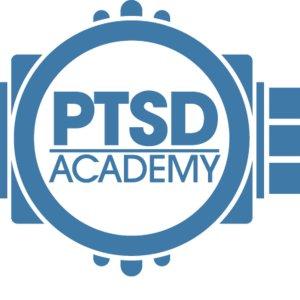Everyone deserves a chance to heal

When Healers Feel the Wounds
Episode 009: Surviving Life as Level-III Empath.
In coming episodes you’ll hear more about the physical components of how a body with PTSD eventually burns our early causing some predictable clinical syndromes. For now, we will focus on what an “empath” is. Even if you are not an empath or a “sensitive person”, there are many in our world and you won’t fully grasp what PTSD is until you understand how a group of people different than you experience the world.
What is a Level-III Empath?
* Sympathy is feeling sorry for someone.
* Empathy is sharing the suffering with them in a compassionate way.
* Being an empath means that you actually feel what the suffer feels. Not only to you sympathize but your empathy is experience in your body. Bodily sensations of pain, anxiety, tension and tightness build whenever you’re around certain people or think about certain things. If this sound like you, you’re probably an empath and you should get yourself educated about what you can do about it. Judith’s book was a great start for me though quite a bit of it still sounds off the wall, so I create courses now in PTSD Academy to teach people how to heal from PTSD that are empaths.
Surviving life as a Level-III Empath
Two significant experiences led me to my current view on the “chemistry” between people and being an empath. The first happened when I was in psychiatry residency, I was surprised by the number of grandparent who were letting their children and grandchildren be disrespectful to them. None of the books or classes had prepared me for how to think about this problem, much less what to do about it. So, like I was trained to do, I did my own research and found a book titled Setting Boundaries with your Adult Children, by Allison Bottke that helped open my eyes to generational enabling behaviors. I was already familiar with enabling from Al-Anon, but somehow this was different.
The second experience was the physical tension, stress, and pain I felt when I first started doing PTSD work. It seemed like the client’s energy was transferred over to me and I began to listen closer to my friends that talked about “releasing” unwanted energy. That’s when my Amazon search led me to Judith Orloff’s book, The Empath’s Survival Guide: Life Strategies for Sensitive People. Sensitive people? When did I become a sensitive person?
Self-Care Redefined
So what are we really saying here? If you accept that you are affected by other's energy, than you can decide to learn what to do about it. See, in the background of the always distracting PTSD are some things you're supposed to be doing for yourself anyway - like continuing to grow up and be responsible.
The Four Adult Tasks of Intimacy
* Helping Others.
* Receiving Care.
* Negotiating one's own needs. Advocating for one's self.
* Feeling comfortable going your own way when you know it's right.
If you, or someone you know, suffers from the energy they absorb working with PTSD survivors, join PTSD Academy to learn tips and strategies for your to set energetic (and physical) boundaries!






 Visit Podcast Website
Visit Podcast Website RSS Podcast Feed
RSS Podcast Feed Subscribe
Subscribe
 Add to MyCast
Add to MyCast